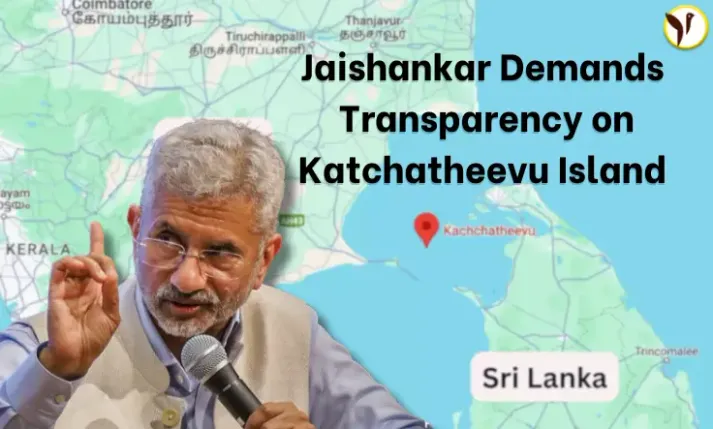External Affairs Minister S. Jaishankar recently spoke up about an issue that's been simmering for years: the transfer of Katchatheevu island to Sri Lanka. This small island has been a bone of contention between India and Sri Lanka since 1974 when it was handed over to Sri Lanka under an agreement between the two countries.
Jaishankar's main point was simple: the public has the right to know why and how Katchatheevu was given away. He criticized certain political parties, especially the Congress and DMK, for not taking responsibility for this decision and for not being transparent about it.
Back in 1974, India and Sri Lanka signed an agreement that drew a maritime boundary, putting Katchatheevu on Sri Lanka's side. This move affected Indian fishermen who lost their rights to fish in the area, despite assurances given to the Indian Parliament.
Jaishankar highlighted some troubling numbers. Over the last 20 years, thousands of Indian fishermen have been detained by Sri Lanka, and hundreds of their boats have been seized. This ongoing issue needs urgent attention, Jaishankar stressed.
He pointed out that discussions on Katchatheevu have been happening for years, with both past and present governments involved. However, he slammed the DMK's claims of not being consulted, stating that the Tamil Nadu government was indeed kept informed throughout the negotiations.
Earlier in the day, Prime Minister Narendra Modi also spoke about the issue, criticizing the DMK for its role in the island's transfer. He mentioned a report from The Times of India, adding fuel to the already heated debate.
The heart of the matter lies in the historical context. Documents reveal that back in 1974, while there were protests against giving away Katchatheevu, the then Chief Minister of Tamil Nadu, M Karunanidhi, had accepted the Centre’s proposal. This was despite his private misgivings, primarily for political reasons.
The lack of transparency in the decision-making process has irked many. Jaishankar's demand for transparency is a reflection of the growing frustration among the public over the handling of such sensitive territorial issues.
As the issue gains more attention, it's clear that there's a need for open and honest dialogue between India and Sri Lanka. Both countries need to address the concerns of their fishermen and find a resolution that respects the rights of all parties involved.
Lastly, the Katchatheevu island issue is about transparency, accountability, and the rights of the people affected. Jaishankar's call for transparency echoes the sentiments of many who believe that the public deserves to know the truth behind such decisions. As the debate continues, it's crucial for all stakeholders to come together and work towards a solution that ensures justice for everyone involved.







